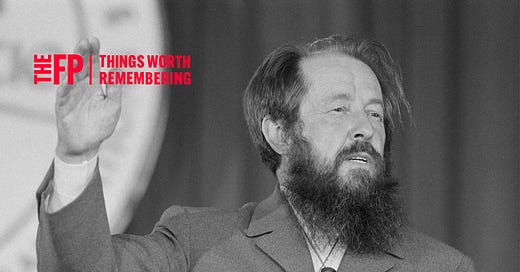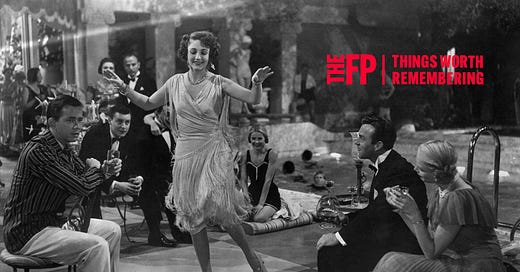
Welcome to Douglas Murray’s column Things Worth Remembering, in which he presents great speeches from famous orators we should commit to heart. To listen to Douglas read from Alexander Solzhenitsyn’s 1978 speech at Harvard, scroll to the end of this piece.
I have been thinking a great deal about Russia these past few days in light of Thursday’s dramatic prisoner swap, which culminated with Wall Street Journal reporter Evan Gershkovich emerging from an airplane at Andrews Air Force Base, outside Washington, D.C.
More to the point, I’ve been thinking about those courageous Russian souls who, like Gershkovich, escaped from the authoritarian darkness and found their way to America.
At the top of that list is Alexander Solzhenitsyn—the author of one of the few books that actually changed the world. The Gulag Archipelago, a three-volume nonfiction account of life inside the notorious Stalinist penal system, first appeared in French in 1973, and the next year in English.
It created an audible and devastating crack in the Iron Curtain.














